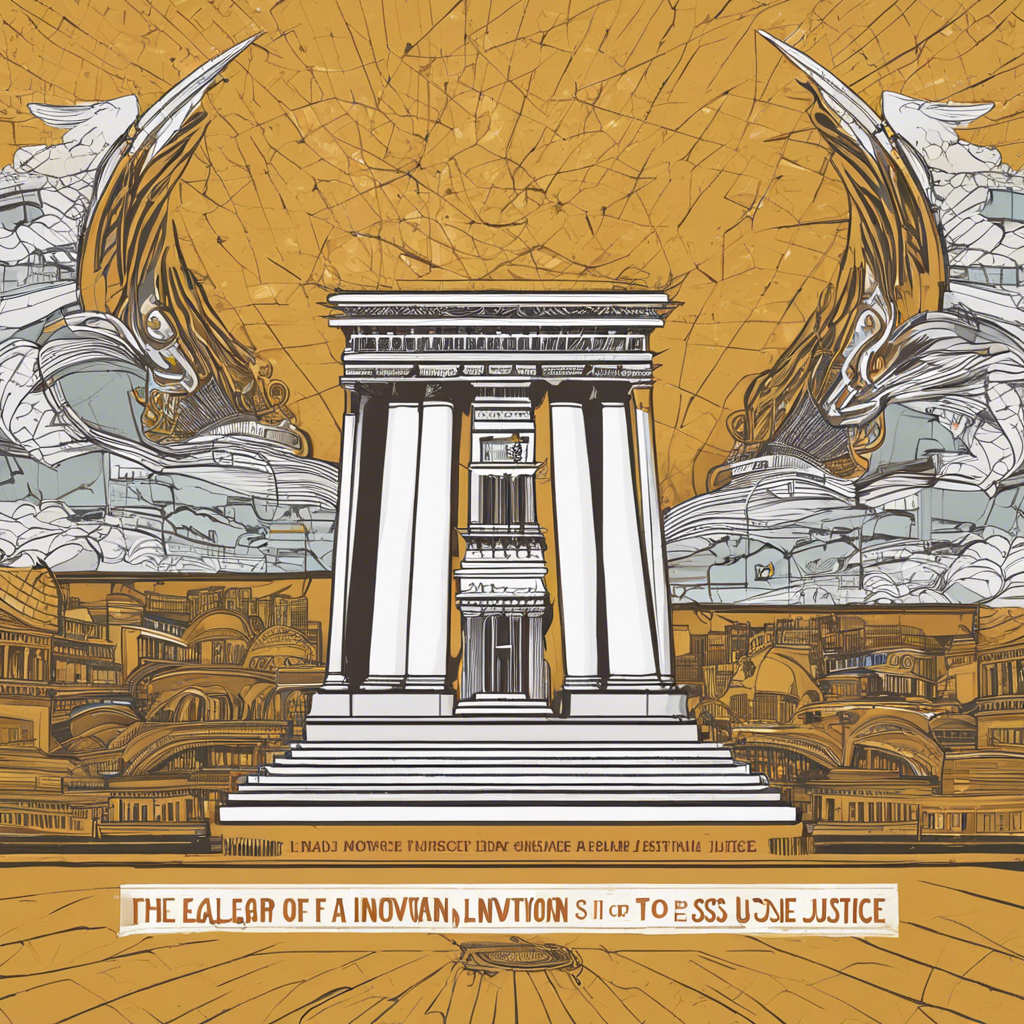How legal innovations are revolutionizing access to justice for all.
The legal landscape is undergoing a profound transformation. With the advent of technology, online platforms, and innovative legal services, the traditional barriers to accessing justice are being dismantled. This article explores the myriad ways in which these legal innovations are enhancing access to justice, empowering individuals, and promoting inclusivity in the legal system.
Technology as a Game Changer
The integration of technology into the legal realm has been a game-changer. Online platforms and legal tech startups are leveraging technology to provide affordable, accessible, and efficient legal services. These platforms offer a wide range of tools, from online dispute resolution to automated document generation, that cater to various legal needs.
One of the most significant impacts of technology is its ability to bridge the justice gap, especially for underserved communities. Online platforms provide a cost-effective alternative to traditional legal services, making legal representation and advice more affordable and accessible to those who need it most. This democratization of legal services empowers individuals to protect their rights and navigate the legal system with confidence.
Online Dispute Resolution: Transforming Conflict Resolution
Online Dispute Resolution (ODR) is a powerful innovation that is revolutionizing conflict resolution. ODR platforms enable parties to resolve disputes online, without the need for costly and time-consuming traditional courtroom proceedings. This approach is particularly beneficial for small claims, landlord-tenant disputes, and consumer complaints.
ODR platforms utilize mediation, arbitration, and negotiation techniques to facilitate fair and efficient resolutions. These platforms often employ AI-powered algorithms to analyze data, provide guidance, and suggest possible outcomes, ensuring a fair and impartial process. By removing geographical barriers and reducing costs, ODR is making legal solutions more accessible to a broader audience.
The Power of Automated Document Generation
Automated document generation is another legal innovation that simplifies complex legal processes. These tools allow users to create customized legal documents quickly and accurately, saving time and reducing the risk of errors. This is particularly useful for drafting contracts, wills, and other legal agreements, which can be done without the need for an attorney’s involvement.
By empowering individuals to take control of their legal affairs, automated document generation promotes self-representation and reduces the overall cost of legal services.
Other Innovations and Their Impact
The legal innovation landscape is diverse and includes other impactful developments:
- Legal Research Tools: Advanced legal research tools provide efficient access to case law, statutes, and regulations, aiding lawyers and self-represented litigants.
- Virtual Legal Assistance: Virtual legal assistants powered by AI offer 24/7 support, answering legal queries and providing guidance.
- Blockchain for Smart Contracts: Blockchain technology ensures secure and transparent execution of smart contracts, reducing the need for intermediaries.
These innovations collectively contribute to a more accessible, efficient, and user-friendly legal system.
FAQs: Your Legal Innovation Questions Answered
1. How do legal tech startups ensure quality and reliability in their services?
Legal tech startups are committed to maintaining high standards. Many platforms have quality control measures, including experienced legal professionals who review and validate the technology’s output. These professionals ensure that the services are accurate, reliable, and compliant with legal standards.
2. Are there concerns about data privacy and security with online legal platforms?
Data privacy and security are top priorities for legal innovation providers. These platforms implement robust security measures, including encryption and data protection protocols, to safeguard user information. They also adhere to strict privacy regulations, ensuring that sensitive data remains confidential.
3. Can legal technology completely replace the need for lawyers?
While legal technology can streamline many legal processes, it cannot replace the expertise and judgment of lawyers. Legal tech tools are designed to assist lawyers and individuals, making their work more efficient. They also enable lawyers to focus on complex tasks and provide more specialized services.
Conclusion: A Brighter Future for Access to Justice
The impact of legal innovations on access to justice is undeniable. These advancements are transforming the legal landscape, making it more accessible, affordable, and user-friendly. By leveraging technology, legal services are no longer exclusive to the privileged few. Instead, they are becoming a tool for empowerment and equality.
As legal innovations continue to evolve, we can expect further improvements in efficiency, cost-effectiveness, and inclusivity. The legal system is adapting to the digital age, ensuring that justice is not only served but also accessible to all.
—
**Recommended External Links:**
1. Legal Tech Startups That Seek to Disrupt Law Practice
2. Automated Document Assembly for the Legal Industry
3. Legal Tech Startups and the Future of Law
